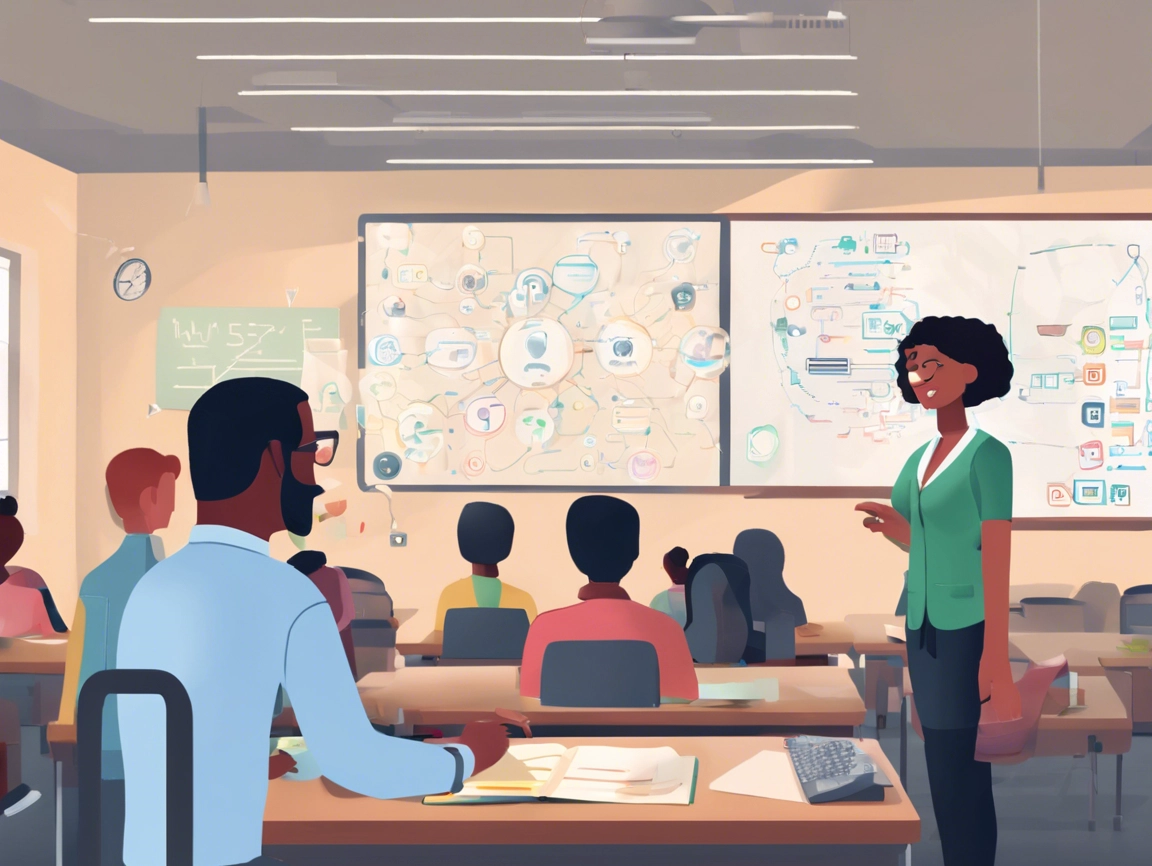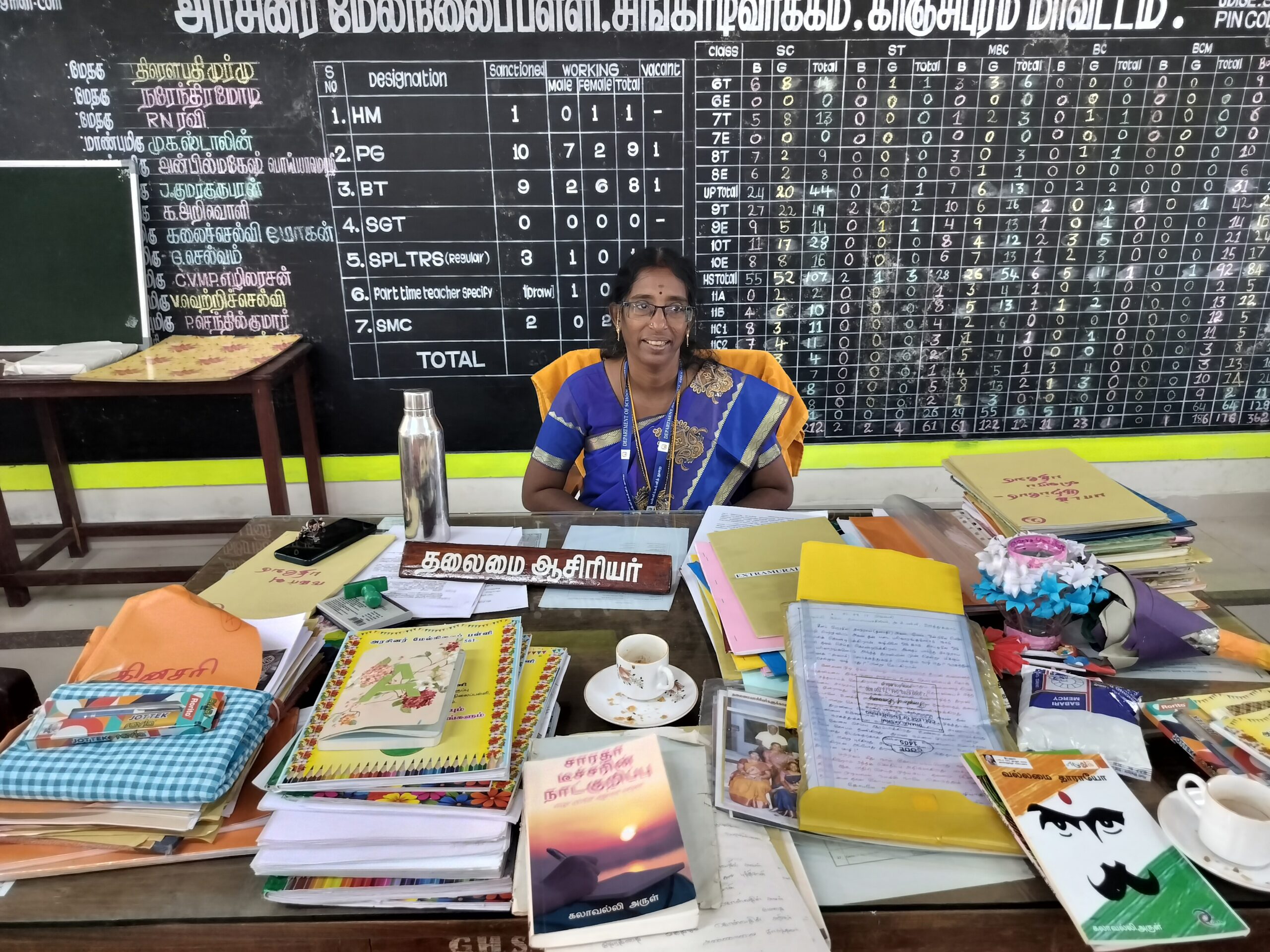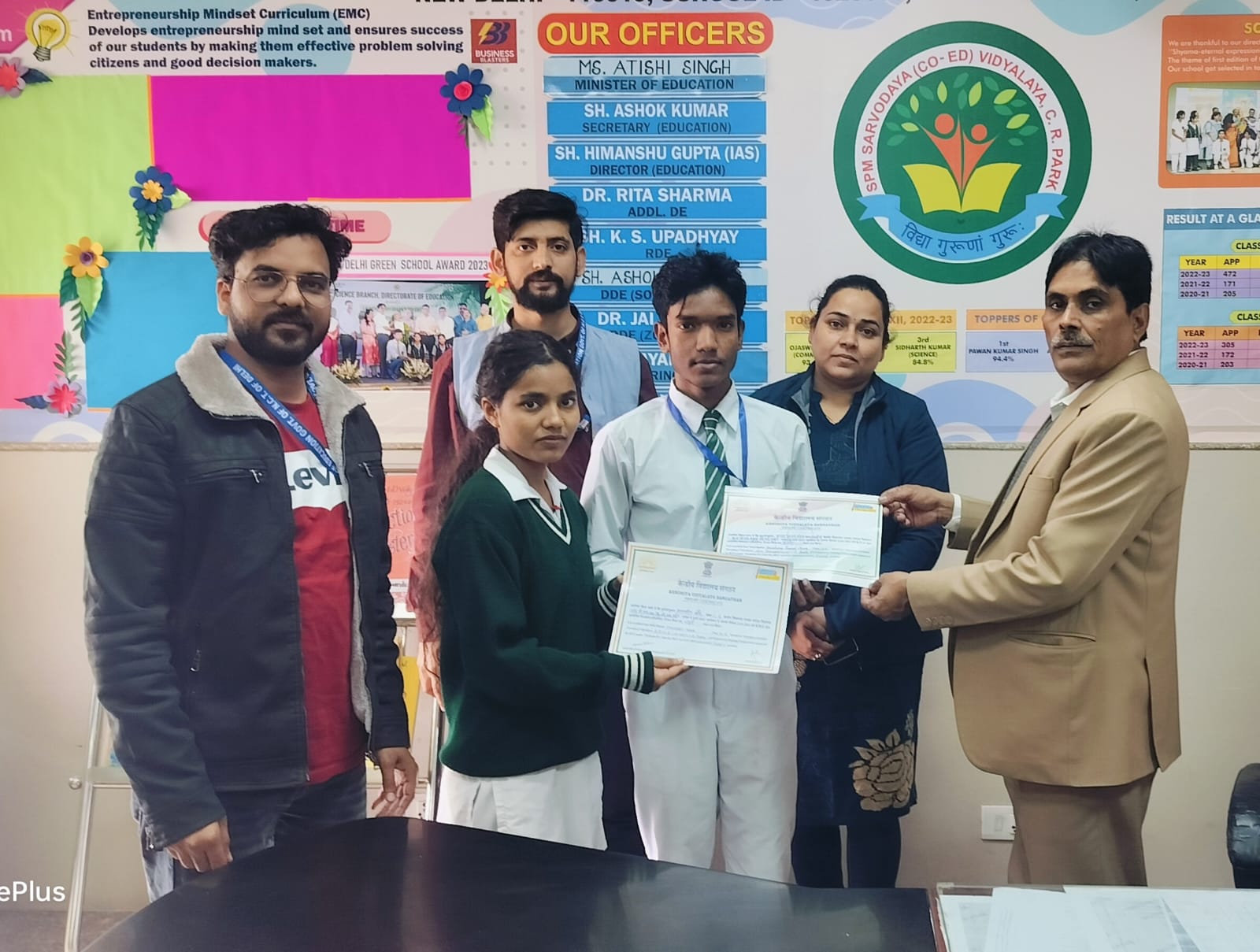The Impact of CO-ART Meetings in Enhancing the Teaching-Learning Process
Deepak Kumar Mittal
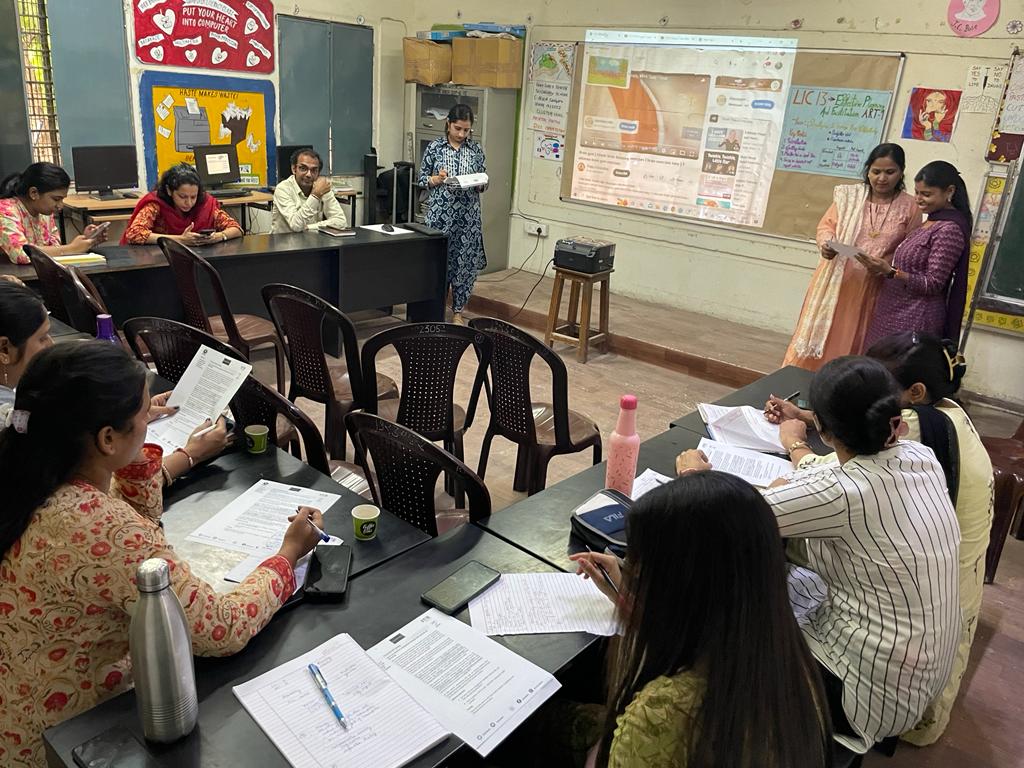
The success of any program depends on its implementation. Similarly, the success of the TDC (Teacher Development Coordinator) Program becomes evident when its impact is visible on students and teachers in classrooms. This impact is observed at Rajkiya Sarvodya Kanya Vidyalaya C Block, Sangam Vihar, illustrating how the TDC program has improved the teaching-learning process.
The TDC program introduces various techniques and methods through different Learning Improvement Cycles (LICs) to enhance the learning process and classroom activities for maximum student engagement through discussion and sharing at various Network Meetings. Academic Resource Team or ART Meetings mark the early stages of network meetings at school, gathering of teachers from various subjects to establish a collaborative learning environment. Subsequently, these network teachers disseminate the acquired knowledge in subject-specific meetings referred to as CO-ART meetings. In these meetings, teachers within the same subject participate, reflecting on diverse strategies.
The Crucial Role of CO-ART Meetings
CO-ART meetings play a crucial role in this process, where all subject teachers come together to discuss and plan their subject-specific teaching learning strategies based on the available resources. Initially, organising these CO-ART meetings was challenging due to issues like time constraints and teacher availability, but with the support of the school principal and the TDC coordinator, they began to succeed.
During ART meetings, the TDC coordinator simplified the LIC content and agenda, making it more accessible to ART members, who then carried forward the agenda in CO-ART meetings.
Fostering Open Discussions and Classroom Observations
Both ART and CO-ART meetings at this school provide all members with adequate opportunities and time to express their ideas freely. These discussions not only address practical challenges but also focus on techniques for resolving practical issues based on discussion and feedback.
Efforts have also been made to establish a classroom observation process where TDC coordinators regularly invite all ART and subject teachers to observe their respective classes. Similarly, ART members also invite teachers to observe their classes, promoting mutual learning and development. While there is still progress to be made in this area, there is considerable success observed through these practices.
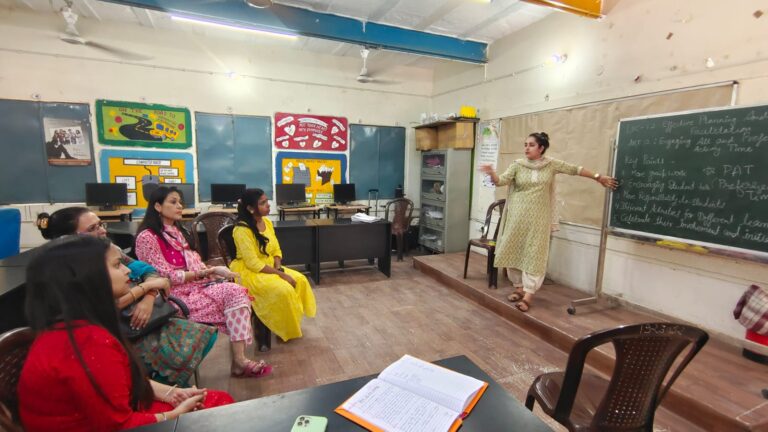
Addressing Challenges as a Mentor Teacher
In the role of a mentor teacher in this school, it is challenging to conduct CO-ART meetings regularly according to the practical situations in the school. There are some challenges in conducting these meetings, such as a lack of self-confidence among ART members or a lack of facilitation skills. To address these challenges, Ms. Sunita TDC and I have built trust with all ART members and assured them that “we are working together in a small group to discuss these methods, techniques and technologies wherever you feel our need. The phrase ‘we are here, aren’t we’ has firmly established this belief.”
Furthermore, ART members who excel in their work or are invited for classroom observations are also honoured on various occasions, such as CLDP sessions by different school principals, annual festivals, or other school events. Ms. Pushpa Ekka, Principal of the school provides full support and assistance to colleagues with doubts or concerns, which is why ART meetings and CO-ART meetings are conducted very effectively here.
Effect of CO-ART Meetings on the Teaching-Learning Process in Classrooms
Co-ART meetings have a significant impact on the teaching-learning process in classrooms. As a mentor teacher, I have found that students now feel more connected to teachers than before. Additionally, it has been observed that students feel emotionally, mentally, and physically safer than before. The contribution of LIC’s techniques and extensive discussions in ART and CO-ART meetings is clearly evident in the classrooms.
I have also seen that students are now starting to work in groups or pairs more openly. Their self-confidence and leadership skills are developing. Students are asking more questions than before and are also helping in the management of various activities.
For teachers, the activities and techniques discussed in CO-ART meetings have helped them become better, smoother performers. Now, teachers are conducting activities with more self-confidence.
Here are some reflections and feedback teachers give that clearly demonstrate the positive impact of CO-ART meetings and the TDC program on teachers and students, leading to an enhanced teaching-learning experience in the classroom.
“Participating in LIC’s Co ART meetings has been an incredible experience. Despite the challenges we face in Sangam Vihar, these meetings have greatly enhanced our teaching methods. They’ve helped build connections, plan lessons, create a safe learning environment, and manage time effectively. Students now feel safer and more engaged in class, thanks to strategies like ‘Do Now’ and ‘Hook.’ We also appreciate the impact on workload balance and work-life balance.”
Geeta & Pooja, Teacher
“ART and CO-ART meetings have been invaluable for educators. They’ve empowered us with strategies to link creative concepts with academic content, fostering analytical thinking in students. These meetings enhance academic achievement, engagement, and students’ social-emotional development. They encourage ownership and bring about positive changes in students’ personalities, making learning a holistic experience.”
Deepti Suman, Teacher
“Co ART meetings have equipped us with valuable teaching techniques and strategies. These methods improve class management and include mind-energising activities that awaken students’ minds and keep them active. It’s been a game-changer for us as educators, helping us conduct classes more effectively and engage students better.”
Uma, Teacher

